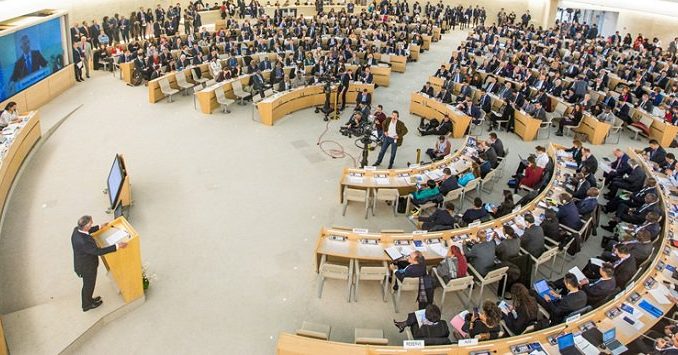
By Indrani Bagchi
New Delhi : India has received 250 recommendations from different countries after the universal periodic review of India’s human rights record. The May 4 meeting in Geneva at the UNHRC saw the attorney general, Mukul Rohatgi defend India’s policies and programs. India has promised to “review and report back to the HRC in September”, said the UN in a statement this evening.
Some of the recommendations for India include the following:
India has been asked to ratify the UN convention against torture and eliminate the death penalty; de-criminalize same-sex consensual relationships; develop national strategy to tackle exploitative labour practices and ratify the 2014 ILO protocol to the Forced Labour Convention.
Many countries asked India to criminalize marital rape by removing the exception of marital rape from the definition of rape in article 375 of the Penal Code and strengthen protection for children. Others asked India to develop a national plan for human rights, and include human rights education in the draft new education policy.
India has also been asked to ensure effective implementation of Scheduled castes and tribes act, specially in training state officials. Several others asked for a national action plan to combat hate crimes, racism and negative stereotypes against people of African descent inside its territory, including appropriate programmes of public awareness that will address racism and Afro-phobia.
India has once again been asked to revise the AFSPA and bring it into compliance with the obligations under the International Covenant on Civil and Political Rights, with a view to fight impunity; abolish death penalty.
Pakistan has asked India to “take visible policy and other measures to ensure the freedom of religion and belief and address the alarming trend of racism, racial discrimination, xenophobia and related intolerance including mob violence committed, incited and advocated by right-wing parties and affiliated extremist organizations against minorities, particularly Muslims, Christians, Sikhs and Dalits.”

Leave a Reply